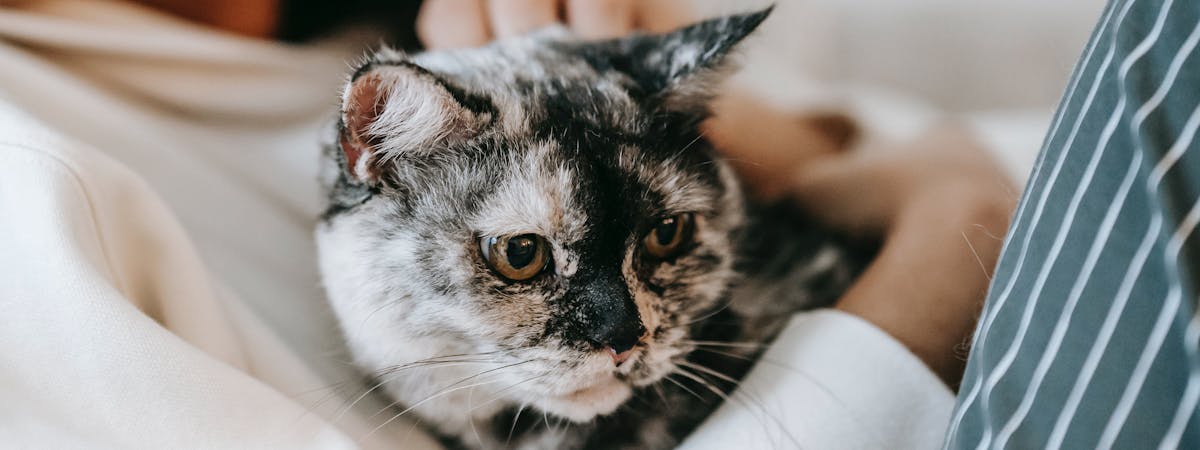Cats are incredible animals that make wonderful, loving pets. However, sometimes their behaviour and habits completely baffle their humans. We’ll have a go at answering some of your most-asked cat questions.
Trending posts
Purr-use some of the top blogs our members have been loving this month- Top male dog names for your new furry friendGot a new furry family member in your pack? Check…

- Top female dog names for your new fluffy palWelcoming a new pooch into your family? Explore…

- 250+ gray cat names your silver feline will loveRecently welcomed a fluffy gray bundle of joy into…

- What are normal pet sitting rates?Discover the average pet sitting rates for animals…

- Unique dog names to stand out from the packDare to be different with our list of the best…

Why do cats purr?
We humans love the sound of a purring cat. It suggests to us that our cat is relaxed and it makes us feel relaxed, too. Why do cats “buzz” like this and does it actually mean that they’re content?
Kittens can purr when they’re just a few days old and it’s a way for them to communicate with their mums. We’ve heard that mums also purr as a kind of lullaby for their little ones, which is so adorable.
Our pet cats purr when they’re pleased to see us and to encourage us to keep stroking them. They also make a kind of “squeak purr” when they’re hungry. One of the truly lovely things is that purring is thought to be involuntary, like a vocal smile, so if your cat purrs on your lap, they are genuinely delighted to be with you.
You may have heard that cats purr when they feel poorly or in pain. This is also true and a sick cat will purr to self-soothe. It’s thought that the frequency of the vibration actually acts as a pain relief: proof again that cats are amazing.
How long do cats live?
This is a question that all cat lovers want to know: how long will my pet live? Generally speaking, a healthy pet cat will live to be between 13 and 17 years old.
However, there are variables, such as the cat’s environment, lifestyle and diet. Neutered cats on average live longer, as males don’t stray as far or fight as much, and females don’t have pregnancy and birth-associated risks.
All being well, you should enjoy years of companionship with your domestic cat, especially if their general health is good. If you’re interested in your cat’s life stages and how it compares with a human’s, take a look at our cat-to-human years calculator.
Why do cats knead?
Like purring, we associate kneading with our kitty feeling happy and content. We love watching them pummel a soft blanket or cushion with their paws and it’s easy to see why this is also known as “making biscuits”, as they look just like they’re kneading dough!
Kittens knead their mum when they’re tiny, as it encourages her milk to flow. If an adult cat kneads, it means they’re feeling safe and happy, just like they used to when they were snuggling with their mama cat. If your pet kneads near you, or even on your lap, take it as a big compliment.
You may also have noticed that your cat kneads their bed or blanket before settling down for a nap. This is an ingrained habit from their wild ancestors. Your pet is creating a comfy nest, while simultaneously checking it for bugs and sharp objects.
Why do cats like boxes?
All cat owners know how much their pets love boxes! The moment they see that Amazon package, they’re poised, ready to adopt the box the moment it’s empty. So, why do cats love boxes so much?
Again, it comes from their wild instincts. A box is a safe space where they can be hidden but still see out (if you want your cat to really love a box, cut out some peepholes!). It’s a good base for a cat to use for pouncing on prey, which means you can have lots of fun with a cat, a box and a catnip mouse or ball.
Cardboard is also lovely and warm, which is why your cat loves delivery boxes. And of course, we mustn't forget that cats are simply the most nosy of animals. A box is a new addition to their territory, which must be thoroughly examined.
How long are cats pregnant?
A typical cat pregnancy is between 63 and 67 days, most commonly around 65 days. It can last a bit longer, up to around 72 days.
It can be hard to tell if your cat is pregnant, as they don’t really get a big belly until around 30 days. However, you may notice her appetite increasing and she may even have a bout of morning sickness, as she goes through the various cat pregnancy stages.
Your vet will be able to confirm the pregnancy by feeling your cat’s tum or by using an ultrasound, although this won’t be able to confirm the number of kittens. Litters can be as big as 10 kittens; however, a first time queen (pregnant cat) typically has a smaller litter of 2 or 3 babies.
Can cats eat chocolate?
Cats can’t eat chocolate because it contains a chemical called theobromine, which is poisonous to cats and dogs. If this is the case, why do we hear of dogs coming down with chocolate poisoning, but not cats?
This is because cats don’t have sweet taste receptors. To them, chocolate is a thing of extreme indifference rather than a delicious, must-try treat. Dogs on the other hand will happily steal your favourite chocolate bar, as they have a sweeter tooth.
However, just in case your cat is tempted to try a bite of chocolate one day, it’s always worth keeping it safely away from animals.
Why do cats sleep so much?
This is a commonly asked cat question, as owners can’t believe how many hours a day their cat spends sleeping. The answer often makes them laugh: it’s because your cat is a fierce predator who has to conserve their energy ready for fast bursts of prey hunting.
This is pretty hard to believe, as you watch Muffin snooze for the fourth time today, curled up on the sofa near the radiator. She’s really gearing up for a bout of extreme hunting? Yes, she is. The instinct to rest and preserve energy remains strong and an adult cat can sleep for up to 20 hours a day.
Why do cats hate water?
This is a bit of a myth about cats: many of them don’t hate water, and like most mammals, they can swim if they have to. However, unlike their canine counterparts, cats will rarely decide to have a dip in the garden pond or local stream for the fun of it.
Some breeds actively enjoy water, such as the Turkish Van (known as the “swimming cat”). However, many cats will avoid being immersed in water because they don’t like how it makes their fur feel and smell. Cats, as we know, are fussy groomers, and they don’t care for having their efforts messed up.
There’s also an evolutionary reason why cats don’t have an affinity with water. Their wild cat ancestors tend to come from dry places, so they’ve never needed to adapt to water.
Why do cats eat grass?
Some cats seem to enjoy nibbling grass stems. Why do they do this? There’s a theory that cats deliberately eat grass to make themselves sick if they have an upset tummy or some stuck fur to bring up.
This is one of the reasons and grass can also act as laxative if your cat is feeling a bit blocked up. Cats also eat grass to boost their folic acid intake: yes, your cat is taking health supplements.
And surprisingly for such committed little carnivores, there are cats that simply like the taste of grass. That's one of the many wonderful things about cats: they really are all individuals.
Why do cats have whiskers?
Cats’ whiskers are amazing. These aren’t simply cute longer facial hairs, but are incredibly sensitive pieces of high-tech kitty kit, which effectively give your pet a whole extra sense.
The tips are what’s called “proprioceptors”, which is a sensory organ that’s sensitive to vibrations as well as changes in the cat’s environment. They help your cat judge spaces, and improve their close-up vision (as hunters, cats have better longer vision). Their whiskers also help your cat navigate in the dark.
Never trim your cats’ whiskers, although don’t worry if one falls out as they do grow back. Whiskers also change colour with age, which we thought was rather appealing. Find out more about the world of cat whiskers in our post dedicated to the topic!
There are so many fascinating facts about cats that we could easily carry on and answer even more cat questions! We hope that this has given you an insight into the amazing world of our domestic moggies.
Why are cats so cute?
It turns out that us humans are this devoted to our feline friends because of evolution! Head to our blog where we explore a bit of the science behind why cats are just so irresistible to us.
What does it mean when a cat wags its tail?
You know your kitty best, so get to know their body language in different situations to help you gauge how they're feeling. If your fluffball is wagging their tail, it could signal that they're about to pounce (especially if they've spotted something they'd like to hunt). Otherwise, it might tell you that they're feeling unhappy or annoyed, or that they're in pain.
Cat sitting for fabulous felines
As such territorial creatures, cats tend to be happiest at home. If you have a holiday planned, arrange for one of our wonderful pet sitters to come and care for your kitty.
Or, if you’re a cat lover looking for a house sitting assignment, take a look at our latest pet sitting opportunities. Here are a few tips about caring for cats, as told by our lovely pet owners.

